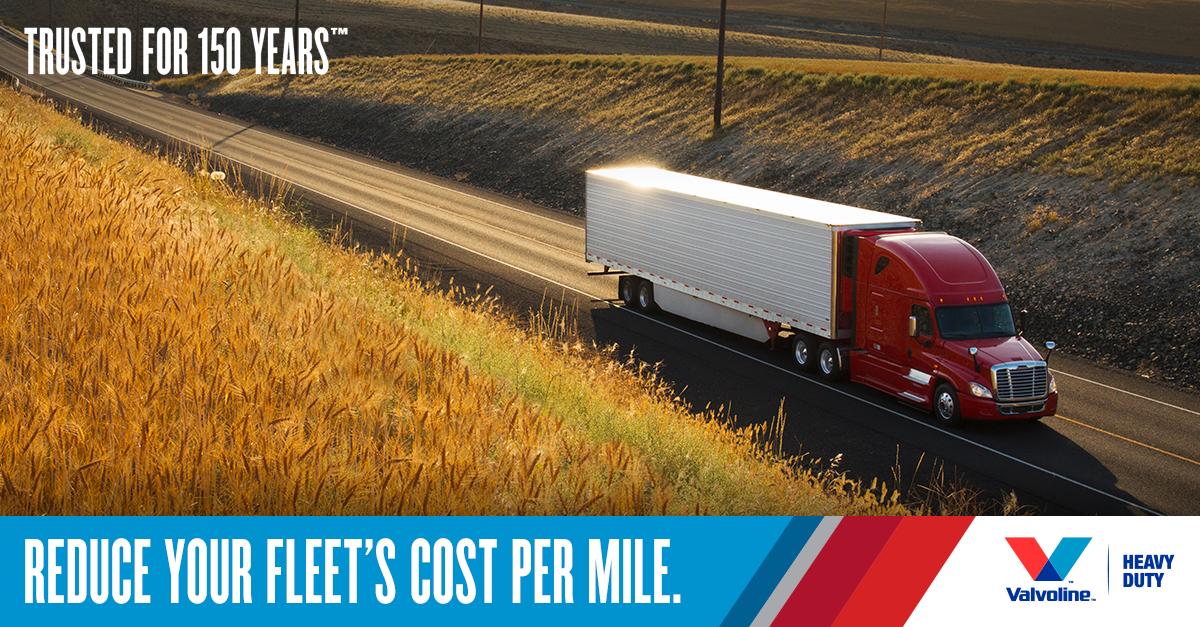Valvoline Premium Blue One Solution Gen 2

The heavy-duty engine oil market is constantly evolving, driven by stricter emissions regulations, increasing engine demands, and a growing need for extended drain intervals. Valvoline's Premium Blue One Solution Gen 2 represents a significant contender in this space, promising a universal solution for mixed fleets. This article provides an in-depth analysis of this engine oil, focusing on its technical specifications, engineering choices, real-world performance, and its position relative to competing products. We'll also delve into reliability aspects, maintenance tips, and anticipate future trends influencing the heavy-duty engine oil sector.
Technical Specifications and Engineering Choices
Valvoline Premium Blue One Solution Gen 2 is a synthetic blend engine oil formulated to meet and exceed the latest industry standards. Key specifications include:
- API Service Categories: CK-4, FA-4, SN
- SAE Viscosity Grades: 15W-40, 10W-30
- OEM Approvals: Cummins CES 20086, Detroit Diesel DFS 93K222, Mack EOS-4.5, Volvo VDS-4.5, Caterpillar ECF-3, Daimler MB 228.31, Renault RLD-3
The "One Solution" designation highlights its suitability for a wide range of engine types, including those requiring API CK-4 (for older diesel engines) and FA-4 (for newer, fuel-efficient engines). The synthetic blend composition offers a balance between cost-effectiveness and enhanced performance compared to conventional oils. The inclusion of advanced additives, including detergents, dispersants, anti-wear agents, and oxidation inhibitors, is crucial for achieving extended drain intervals and protecting engine components under demanding operating conditions.
Engineering choices centered around minimizing friction and wear, while maximizing oxidation stability and soot handling. The 10W-30 variant is specifically targeted at improving fuel economy in modern engines without compromising durability. The oil's robust formulation is designed to combat common issues in heavy-duty engines, such as piston deposits, valve train wear, and oil thickening due to soot accumulation.
Real-World Performance and Comparisons
Real-world performance data, gathered from fleet trials and independent testing, suggests that Valvoline Premium Blue One Solution Gen 2 delivers tangible benefits. Fleets report improved fuel economy (particularly with the 10W-30 variant), reduced oil consumption, and extended drain intervals compared to conventional oils. However, the magnitude of these benefits varies depending on engine type, operating conditions, and maintenance practices.
Compared to fully synthetic alternatives, Premium Blue One Solution Gen 2 typically offers a more competitive price point, making it an attractive option for fleets seeking a balance between performance and cost. While fully synthetic oils generally provide superior high-temperature stability and longer drain intervals, the synthetic blend formulation of Premium Blue One Solution Gen 2 still offers a significant improvement over conventional oils at a lower cost.
Competing products include Shell Rotella T6 (fully synthetic), Chevron Delo 400 XLE (synthetic blend), and Mobil Delvac 1300 Super (conventional). Rotella T6 offers superior performance in extreme conditions and extended drain intervals, but at a higher cost. Delo 400 XLE is a direct competitor, offering a similar synthetic blend formulation. Mobil Delvac 1300 Super represents a more budget-friendly option but lacks the advanced performance characteristics of synthetic or synthetic blend oils.
Reliability and Maintenance Tips
The reliability of Valvoline Premium Blue One Solution Gen 2 depends heavily on proper maintenance practices. Regular oil analysis is critical for monitoring oil condition, detecting potential engine problems, and optimizing drain intervals. Following OEM recommendations for oil filter changes and engine maintenance is also essential.
Key maintenance tips include:
- Implementing a consistent oil sampling program.
- Adhering to OEM-recommended drain intervals (or extending them based on oil analysis results).
- Using high-quality oil filters.
- Monitoring engine operating conditions (e.g., temperature, load).
- Addressing any engine issues promptly to prevent oil contamination.
Premature oil degradation can be caused by excessive idling, frequent short trips, heavy loads, and engine overheating. Addressing these factors can significantly extend the life of the oil and improve engine reliability.
Pros and Cons
Pros:
- Universal formulation suitable for mixed fleets.
- Enhanced performance compared to conventional oils.
- Cost-effective alternative to fully synthetic oils.
- Meets and exceeds latest industry standards.
- Extended drain interval potential.
Cons:
- Not as robust as fully synthetic oils in extreme conditions.
- Drain intervals still dependent on operating conditions and engine type.
- Requires regular oil analysis for optimal performance.
Future Trends
The heavy-duty engine oil market is expected to continue evolving, driven by several key trends:
- Stricter emissions regulations: Leading to the development of even more advanced engine oil formulations.
- Increased use of alternative fuels (e.g., natural gas, biodiesel): Requiring oils specifically formulated for these fuels.
- Growing adoption of electric and hybrid vehicles: Shifting the focus towards lubricants for other components (e.g., transmissions, axles).
- Emphasis on sustainability and reduced environmental impact: Driving the development of bio-based and recycled engine oils.
- Advanced sensor technology and data analytics: Enabling real-time monitoring of oil condition and predictive maintenance.
The increasing complexity of modern engines will require engine oils that can provide even greater protection and performance. Valvoline, and other leading lubricant manufacturers, will need to continue innovating to meet these evolving demands.
Conclusion
Valvoline Premium Blue One Solution Gen 2 offers a compelling solution for fleets seeking a balance between performance, cost, and versatility. While not a fully synthetic oil, its synthetic blend formulation provides significant advantages over conventional oils, making it a suitable choice for a wide range of applications. As the automotive industry continues to evolve towards greater efficiency and sustainability, engine oil technology will play an increasingly crucial role in ensuring engine reliability, reducing emissions, and optimizing fuel economy. The future will demand even more sophisticated lubricants capable of meeting the challenges posed by advanced engine designs and alternative fuels, pushing companies like Valvoline to continually innovate and refine their offerings. The industry's continued focus on data-driven maintenance and real-time oil condition monitoring will further optimize the use of engine oils and contribute to improved fleet performance and reduced environmental impact.
